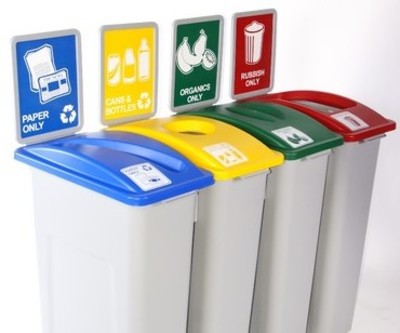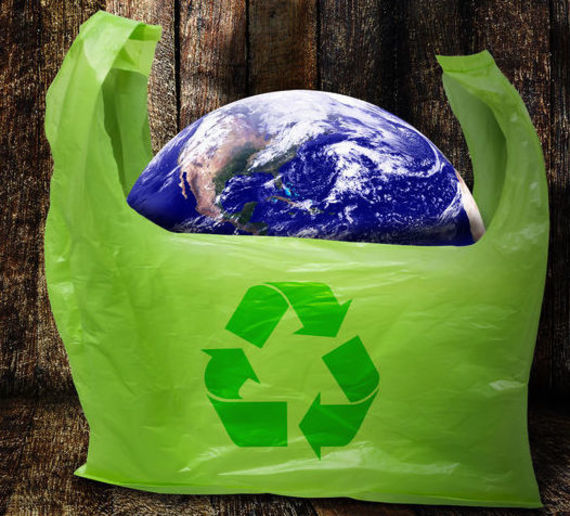Biodegradable and compostable plastics
What is the difference between biodegradable and compostable plastic?
There has been a lot of debate in the media about biodegradable plastic. It seems that we’re surrounded by all sorts of plastics calling themselves biodegradable or compostable. For many, this leads to some serious confusion. I think most of us want to do the right thing by the planet, but worry that if we do the wrong thing with the wrong plastic it could lead to even lead to worse environmental outcomes than just doing ‘nothing’.
So, at Insinc, we're here to help. We’ve been in the business of selling disposable products for many years, because we have made a commitment to protecting the environment. So, we’ll help you come to terms with you the ins, outs, pros and cons of compostable and biodegradable products, because not all of these plastics are created equal.
What is a biodegradable plastic?
Simply put, something is biodegradable if it can be broken down by of living organisms, typically microbes. Enzymes produced by the microbes of bacteria and fungi use the plastic as a source of energy; microbes essentially eat the plastic for food.
When a company says that their product is biodegradable, what they really mean is that it will break down when placed in a landfill. The key, however, is to take note of how long it takes for the product to biodegrade. Some products degrade in months, while others take decades.
What does it mean to say that a plastic is certified as biodegradable?
New Zealand does not have a standard for biodegradable plastics. However, some plastic manufacturers have voluntarily sought certification using existing international standards and label their products accordingly. These standards include a range of tests for biodegradability that take into account where products will end up, such as wastewater treatment plants, freshwater or marine environments.
What does it mean to say that a plastic is compostable?
Composting is the breaking down of biological material such as green waste or food scraps. Commercial composting facilities accelerate the composting process by controlling moisture, airflow, microbial activity and the proportions of different organic wastes. As the microbes consume the waste, they generate heat, which speeds up the process.
Home composting involves a similar process, but as it’s on a much smaller scale, it generally cannot generate as much heat. The breakdown process is much slower.
Typically, when a packaging company calls their product ‘compostable’, it can be broken down in a commercial composting facility. Compostable products do not break down in a home compost bin or biodegrade safely in a landfill, especially where there is no oxygen flow. They have to be in the right kind of conditions.
Some plastic products have been tested and are certified to break down in home compost bins, but there are currently no set guidelines for home composting in New Zealand.
What to do with compostable plastic?
In New Zealand, we don’t have the nationwide infrastructure to ensure that all commercially compostable plastics are collected and sent to commercial composting facilities to be processed in the right way. In most cases, a waste company must be used to collect and transport compostable packaging to a composting facility. WasteMINZ have a list of these facilities, the compostable packaging they accept, and the waste companies that can be used to deliver packaging to the facility: https://www.wasteminz.org.nz/sector-groups/compost-nz/new-zealand-facilities-that-accept-compostable-packaging-and-food-servicewar
 Can I recycle biodegradable plastics?
Can I recycle biodegradable plastics?
Biodegradable plastics can’t be recycled in our current recycling systems in New Zealand. Don’t put these plastics in your recycling bin as they will contaminate otherwise recyclable materials if they get mixed up. Materials advertised as oxo-degradable, degradable or biodegradable, without specifying a composting environment, need to go to landfill.
What happens when biodegradable or compostable plastics end up as rubbish?
Biodegradable or compostable products can only be completely broken down within a reasonable timeframe under the right conditions. While a biodegradable coffee cup may break down within several weeks in a carefully controlled commercial compost facility, the same cup may take decades to break down into microplastics if left in open, marine, or freshwater environments.
Are plant-based plastics better for the environment than oil-based plastics?
The fundamental difference between fossil-based and bio-based plastics can be seen in terms of the production of greenhouse gases. When a fossil-based plastic biodegrades, it adds new carbon dioxide to the atmosphere. When a bio-based plastic biodegrades, it simply cycles the carbon that was removed from the atmosphere when the plant grew. Check out our product lines or talk to us about how we can help you use bio-based plastics. Call 0508 467 462 or you can email us at any time.
By using bio-based plastics, your business can substantially reduce its carbon footprint, which sets a great example for other businesses and consumers. Choose from our biodegradable bags and packaging supplies. You will make a small difference to the environment and a big difference for your company. Plus, you get to feel good for being part of something big: a movement by environmentally conscious organisations who want to do better for the world we live in.
Posted: Monday 7 December 2020


